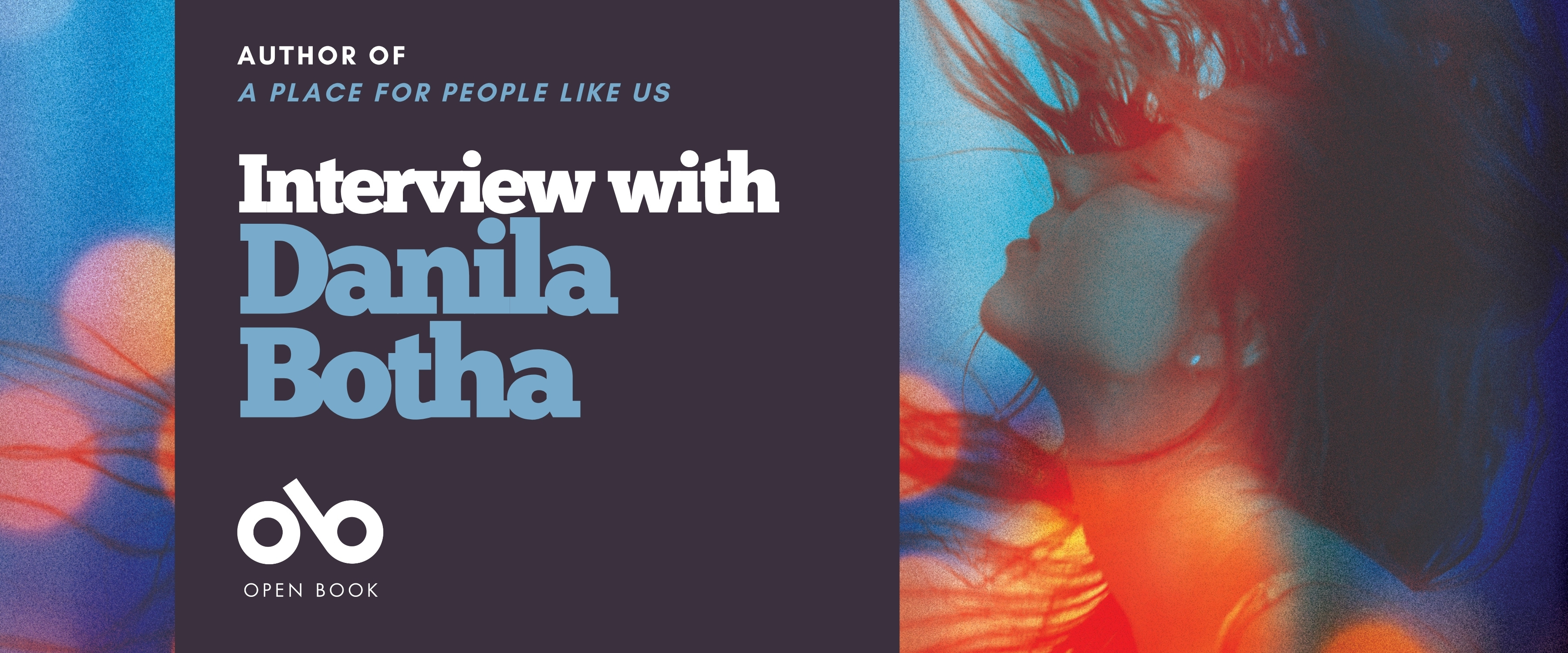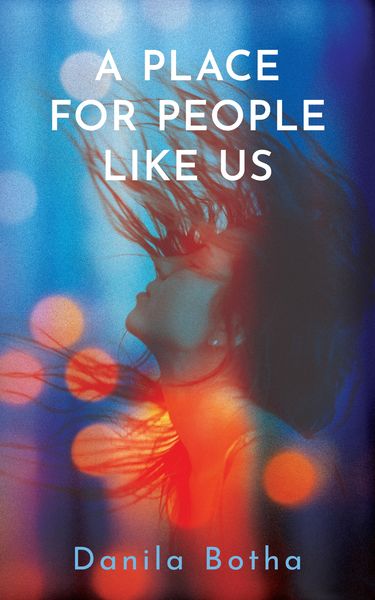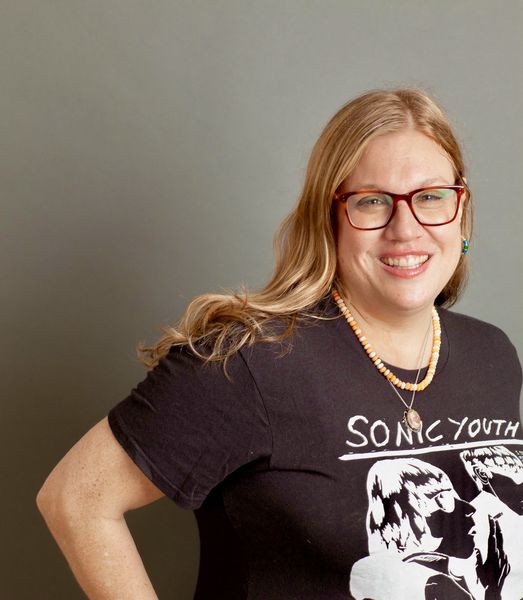Danila Botha Invites Readers Into the Tender, Chaotic World of A PLACE FOR PEOPLE LIKE US
The brand new novel from acclaimed author Danila Botha, aptly titled A Place for People Like Us (Guernica Editions), is a bold and deeply moving exploration of friendship, trust, and the thin line between truth and illusion. When Hannah meets Jillian, their bond forms instantly and grows into something all-too consuming. Both are gifted and full of potential, yet uncertain about their direction in life. Their friendship becomes a lifeline, a shared space of understanding and ambition, until Jillian’s secrets begin to surface and threaten everything they have created together. Botha captures the intensity of their connection and the ache of betrayal with emotional true clarity and compassion.
Set against a backdrop that examines faith, identity, and belonging, A Place for People Like Us moves fluidly between personal drama and larger questions of community and control. Botha brings rare insight into the intersection of Judaism and cult dynamics, revealing how belief and belonging can both sustain and entrap. Her writing is striking in its empathy and nuance, allowing readers to inhabit the shifting emotional landscapes of her characters. Each page feels alive with tension and tenderness as Botha unpacks what it means to seek meaning, love, and acceptance in an uncertain world.
With this new work, Botha confirms her place as one of Canada’s most perceptive and emotionally intelligent storytellers. A Place for People Like Us is both a page-turner and a meditation on the cost of closeness. It asks what we owe to ourselves and to others when the lines between loyalty and illusion blur. Poignant, insightful, and unforgettable, this is a story that lingers long after the final page and reminds readers that the search for belonging is as dangerous as it is essential.
Check out our Long Story Novelist Interview with this prolific, fascinating writer, right here on Open Book!
Open Book:
Do you remember how you first started this novel or the very first bit of writing you did for it?
Danila Botha:
Oh wow, yes. The first draft was actually my thesis when I did my MFA at Guelph. One of the first scenes I wrote now appears late in the novel. Usually, a story or novel starts with voice for me, but in this case, I had a very specific image of a young Orthodox Jewish woman coming downtown to Queen Street, ducking into a Starbucks and changing out of her wig and modest clothing into the clothes she wore in her previous life, before she was religious. There was this overwhelming feeling of relief, and at the same time, worry—about deception, about being caught, about whether what she wanted had been disingenuous. The book has changed in many ways since then—from third to first person, from dual points of view to just Hannah’s—but that scene remains much the same, and it was the first one I wrote.
OB:
How did you choose the setting of your novel? What connection did you have to it when you began writing?
DB:
I really love to write about Toronto. Downtown Toronto, including King Street, is there, but so is the fictionalized university that Hannah and Jillian attended, which is loosely based on my time at York University. The professor in their creative writing workshop, where Hannah and Jillian meet for the second time, is based on the wonderful Priscila Uppal, who, in addition to being so talented and kind, once looked out the window and asked if we thought T.S. Eliot was picturing our surroundings when he wrote The Waste Land. It was such a great, funny moment, and I always wanted to include it.
I also wrote about the Orthodox Jewish neighbourhoods around Bathurst and Lawrence and Bathurst and Glencairn. For people who know the area, I think its landmarks will be recognizable even if fictionalized. Apollo’s Baked Goods is based on Hermes’ Bakery, a kosher bakery on my street growing up that I loved—and the mouthwatering pastries described in the book really exist. I hope the love and connection I feel to the neighbourhood come through; I have tremendous affection for it.
Your CanLit News
Subscribe to Open Book’s newsletter to get local book events, literary content, writing tips, and more in your inbox
OB:
Did the ending of your novel change through the drafts?
DB:
A number of times. I fiddled with the ending a lot. I wanted to leave some questions unanswered, with the potential for any possibility. Short story endings often do this beautifully—they leave the reader wondering what will happen next—and I really hope that’s what I achieved in the final version.
OB:
Did you have a favourite character to write?
DB:
Great question. I really love writing difficult women—women who behave unpredictably, who are true to what they think they want, and are fearless in pursuing it regardless of the consequences. Jillian was especially fun to write, from her taste in art and music to her impulsivity. It was fascinating to create someone so free of conscience and guilt, who went to such extremes.
I loved Hannah’s ambition and imagination too, and her ability to balance her love of film with an elite business program. And Iris—Iris was so smart and capable and direct, but still vulnerable to the sense of belonging her family gave her, and to love, both romantic and maternal.
OB:
How would you describe your book in one sentence?
DB:
An intense friendship and romantic connection that leads Hannah to risk, surprising revelations, deception, and self-discovery.
OB:
What kind of research did you do for this novel?
DB:
So much! Research is one of my favourite parts of writing and refining early drafts. I read a lot about cults to write about Hannah’s past. The NXIVM case with Keith Raniere broke as I was writing—Sarah Berman’s Don’t Call It a Cult was excellent. I was also fascinated by Canadian cults like the Ant Hill Kids and Roch Thériault; those helped me shape Hannah’s father, who was the hardest character to write.
I had lists of great books recommended to me—Margaux Fragoso’s Tiger, Tiger and Chelsea Rooney’s Pedal really haunted me.
I also find white collar crime fascinating. I read many articles and spoke to people who’d experienced it indirectly, as relatives or close friends. That led me to think more about the ripple effects—on families, reputation, and self-perception—rather than just the crime itself.
I was raised Modern Orthodox Jewish, but the Goldwaters are entirely fictional. I did a lot of research—observation, reading, talking to people—because I wanted to capture nuance, for readers both familiar and unfamiliar with the community, and to do it respectfully. I feel tremendous love and respect for that world.
Jillian required a different kind of research. It was sometimes hard to understand her motivations. When I told Dionne Brand how much I was struggling to sympathize with Jillian, especially later in the story, she said, “Think about it—when this happens to someone, they get the best of humanity. People are compassionate and generous.” That insight completely opened a way in for me, and I’m still grateful for it.
OB:
What was the strangest or most memorable experience during the writing process?
DB:
I really struggled with the title. I listen to a lot of music when I write—it helps with characterization, voice, and even setting. I listened to a lot of Fiona Apple, one of my favourites. Her song Fast As You Can from When the Pawn... has this wonderful line: “Oh darling, it’s so sweet / you think you know how crazy, how crazy I am.” I actually considered calling the book How Crazy I Am because it fit Jillian’s voice, but it felt too reductive and not respectful enough toward mental health.
I also played with a line from Zeruya Shalev’s Love Life, but it read as too abstract. Eventually I went back to my first love—short fiction—and reread Jesus’ Son by Denis Johnson. The final story, “Beverly Home,” ends with the line: “All these weirdos, and me getting a little better every day right in the midst of them. I had never known, never even imagined for a heartbeat, that there might be a place for people like us.” It captured everything I wanted to express about love, belonging, and the depth of Hannah and Jillian’s connection.
OB:
Did you celebrate finishing the book?
DB:
Honestly, I was afraid to! I did so many rewrites that I couldn’t quite believe it was done. My wonderful, patient editor Michael Mirolla can attest—I was still tweaking the ending right up to the last moment. He’s so insightful and exacting, and endlessly patient with my experiments. I hope to celebrate soon, now that the book is out.
OB:
Who did you dedicate your novel to, and why?
DB:
I actually didn’t. It didn’t feel like the kind of book you dedicate to anyone. But I hope readers connect with it—and with the characters—as deeply as I did.
OB:
Did you include an epigraph?
DB:
Yes, three. One is from Denis Johnson, from “Beverly Home.” Another is from Bikini Kill—one of my favourite riot grrrl bands. Their songs “Rebel Girl” and “Liar” were on repeat as I wrote the early scenes. When I first heard Kathleen Hanna as a teenager, I remember thinking: if I met someone like her in real life, I’d instantly fall in love.
The third is from Dionne Brand. I read and love all her work; she writes about moral complexity with such precision. Ossuaries is one of my favourite collections, and What We All Long For is one of my favourite novels ever—every page could be quoted.
OB:
What did you learn from writing this novel?
DB:
I learned so much about people—how they think, how they deceive themselves more than others. I thought deeply about spiritual pursuit, identity, and belonging, and how we balance individuality with community. I learned how people crave both stimulation and safety, belonging and freedom. I hope readers think and feel for these characters as deeply as I did.
________________________________________________
Danila Botha is the author of the critically acclaimed short story collections, Got No Secrets, For All the Men (and Some of the Women) I’ve Known, which was a finalist for the Trillium Book Award, The Vine Awards and the ReLit Award and Things that Cause Inappropriate Happiness, which won an Indie Reader Discovery Award for Women's Issues, Fiction, and was a finalist for the Canadian Book Club Awards, the Next Generation Indie Book Awards and the National Indie Excellence Book Awards. She is also the author of the award-winning novel Too Much On the Inside which was optioned for film. Her new novel, A Place for People Like Us will be published in Sept 2025.







